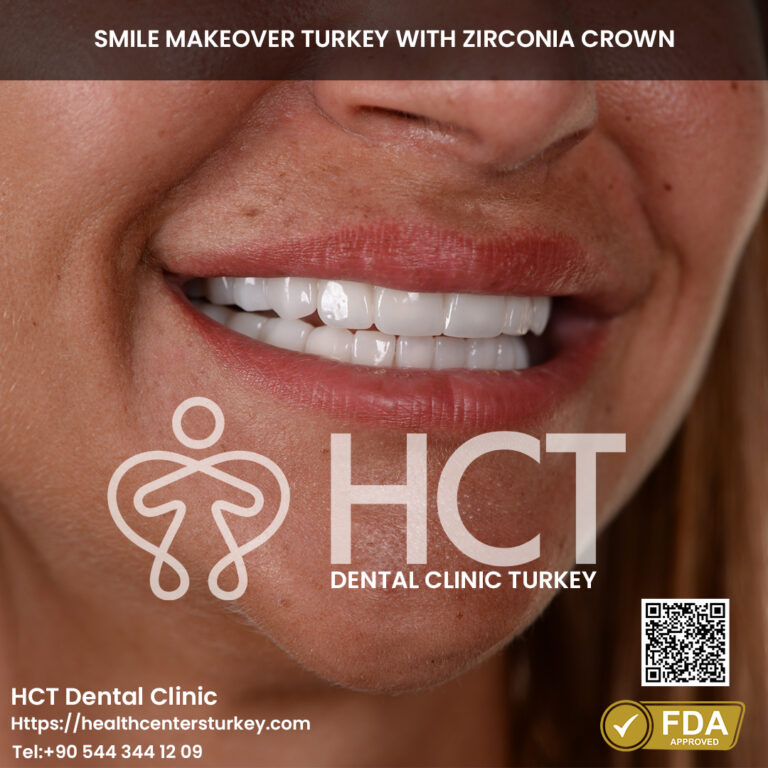Uncover Top Dental Treatments in Turkey for Implants, Veneers, and More

Dental implants have turn into a focal point in fashionable dentistry, offering a dependable answer for these dealing with tooth loss. Among the multiple benefits they provide, one significant side worth contemplating is their impression on adjacent teeth. Understanding how dental implants have an effect on surrounding teeth aids in making knowledgeable decisions about oral health.
When a tooth is misplaced, neighboring teeth can easily shift toward the house left behind. This movement can lead to misalignment, which compromises the general bite and performance of the mouth. Dental implants mimic natural tooth roots, thereby sustaining the position of adjacent teeth.
Competitive Dental Bridges accessible to Patients
The stability supplied by an implant is crucial, because it helps in preserving not just the bodily alignment but also the structural integrity of the jawbone. When a tooth is missing, the underlying bone can begin to deteriorate as a result of lack of stimulation. An implant exerts strain on the bone throughout chewing, similar to a natural tooth, which promotes bone health.
In some instances, a bridge or partial denture may be thought-about as an alternative alternative to implants. While these options might restore some performance, they'll place additional stress on neighboring teeth. Bridges normally require submitting down the surrounding teeth to accommodate the anchors, thereby affecting their health over time. Dental implants, however, don't alter existing teeth, making them a more conservative selection.
Tips for Selecting a Dental Clinic in Antalya
Hygiene turns into another important factor when contemplating adjacent teeth within the context of implants. With dental implants, the person can keep an everyday hygiene routine similar to natural teeth. Flossing and brushing around the implant are simple, guaranteeing that the gum tissue remains healthy and minimizing the danger of gum disease that might adversely affect adjacent teeth.
Moreover, the materials used in dental implants are biocompatible. This means they are designed to combine well with the body, decreasing the possibilities of an opposed response. This attribute not solely makes the implant safe but also protects nearby teeth from potential issues that would come up due to contamination or infection.
In terms of aesthetics, dental implants offer a natural feel and appear, closely resembling original teeth. Adjacent teeth benefit from this aesthetic appeal as well. When an implant is placed, the surrounding gum tissue can be shaped to imitate natural contours, thereby enhancing the overall appearance of the smile. This aesthetic issue can encourage people to put cash into their oral care routines, benefiting each the implants and adjacent teeth in the long term.
Experience Excellent Dental Care at Unbeatable Prices
Another concern is the potential for gum disease, which may have an effect on the health of adjacent teeth. Gum disease can occur when plaque builds up around teeth and implants. Regular dental visits and acceptable oral hygiene can mitigate this concern. The presence of implants also can function a motivator for higher dental hygiene practices, as people turn into more conscious of maintaining their general mouth health.
Studies have shown that dental implants can contribute to a major enchancment in quality of life. Patients often experience increased confidence and are much less hesitant to smile or have interaction in social interactions. A healthy and well-maintained smile not directly promotes better take care of adjacent teeth, as individuals tend to turn into more aware of their general oral hygiene.
One often-overlooked facet is the psychological impression of dental implants on patients. Knowing click site that implants provide long-term solutions can ease the anxiousness related to tooth loss. With fewer worries about future tooth shifts, sufferers are extra likely to make investments time and effort into caring for his or her teeth, which incorporates adjacent teeth.
In conclusion, dental implants function more than just a resolution for missing teeth; they play a pivotal role in sustaining the health and integrity of adjacent teeth. From stopping misalignment to promoting gum health and enhancing aesthetics, the advantages are manifold. By choosing implants, individuals can't only restore performance but additionally foster a healthier oral setting for surrounding teeth. The psychological and aesthetic benefits further contribute to an general enhanced quality of life.
Your Destination for Quality Dental Care at Low Costs
In the long run, understanding how dental implants affect adjacent teeth can information individuals in making empowered selections relating to their dental health. The integration of these implants into the mouth acts as a stabilizing pressure, safeguarding both the bodily alignment and functionality of neighboring teeth, whereas selling a long-lasting, healthy smile.
- Dental implants typically don't exert strain on adjacent teeth, sustaining their integrity and lowering the risk of shifting or misalignment.
- The placement of an implant often encourages better oral hygiene habits, positively influencing the health of adjacent teeth via improved cleansing practices.
Cost-Effective Dental Care offered in Turkey to global patients
- In some circumstances, dental implants can stimulate the encompassing bone, which helps protect the natural teeth's position and total dental structure.

- The hole left by missing teeth can result in bone loss; dental implants can prevent this, thereby protecting adjacent teeth from potential complications.
- read the full info here Effective Braces and Aligners provided in Antalya
Receive Budget-Friendly Oral Health Procedures that Meet Your Needs in Turkey
- By restoring the perform of a missing tooth, implants help distribute bite forces evenly, lowering wear and stress on neighboring teeth.

- Properly positioned dental implants can act as a assist structure, preventing unwanted movement of adjacent teeth resulting from tooth loss.
- The presence of an implant may enhance the aesthetic appearance of surrounding teeth by filling in gaps and supporting facial structure.
Finding the Best Dental Care in Turkey
- Dental implants eliminate the need for adjacent teeth alteration, in contrast to bridges, which require reshaping the nearby teeth for support.
- Implants also reduce the risk of gum disease compared to other tooth replacement options, indirectly benefiting adjacent teeth by promoting overall oral health.
Revitalize Your Oral Health with Cutting-Edge Dental Treatments in Turkey.
- Long-term success of dental implants is linked to the health of surrounding teeth, emphasizing the significance of regular dental check-ups and maintenance.
How do dental implants have an effect on adjacent teeth?
Tailored Dental Care Services available for Every Patient in Turkey
What are dental implants and the way do they work with adjacent teeth?undefinedDental implants are synthetic tooth roots positioned into the jawbone to help replacement teeth. They don’t affect adjacent teeth immediately, as they are independent structures. Instead, they can help preserve the integrity of surrounding teeth by stopping bone loss.
Can dental implants trigger injury to adjacent teeth?undefinedIf placed correctly, dental implants should not harm adjacent teeth. However, improper placement can result in points like misalignment or pressure, emphasizing the importance of choosing an experienced dental skilled.
Will dental implants promote bone progress around adjacent teeth?undefinedYes, dental implants help stimulate the jawbone, which can encourage bone development. This can profit adjacent teeth by maintaining bone density and stability in the space.
Premier Dental Solutions offered throughout Antalya
Should I fear about gum disease affecting adjacent teeth after getting an implant?undefinedGood oral hygiene is crucial after getting an implant. Gum disease can still have an effect on adjacent teeth, however a correctly maintained implant does not increase that risk. Regular dental visits may help monitor and keep gum health.
What happens to adjacent teeth if I lose a dental implant?undefinedIf a dental implant fails or is misplaced, adjacent teeth could shift because of modifications in bite alignment and assist structure. This might lead to misalignment or extra tooth loss if not addressed.
Are there any particular care requirements for adjacent teeth after getting implants?undefinedMaintaining good oral hygiene practices, together with regular brushing, flossing, and dental check-ups, is essential for each dental implants and adjacent teeth to forestall decay and gum disease.
Remarkable Dental Services Focused on Patient Comfort
Do dental implants help assist adjacent teeth when chewing?undefinedAbsolutely. Implants can improve overall chunk function, which might alleviate stress on adjacent teeth throughout chewing. This can lead to higher distribution of forces, promoting oral health.
How can I prevent complications with adjacent teeth and implants?undefinedConsistent dental care, together with professional cleanings and examinations, common brushing and flossing, and following your dentist’s aftercare instructions, are key to stopping problems.
Can adjacent teeth move if I have a dental implant?undefinedAdjacent teeth might transfer if they are not well-supported, particularly after tooth loss. A dental implant helps maintain the structure, lowering the danger of shifting teeth.